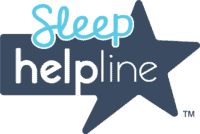Students with narcolepsy and hypersomnia have the right to an equitable education. How can schools and families work together to ensure opportunities for success? Project Sleep and special guests, 2015 Jack & Julie Narcolepsy Scholarship recipients Kenya Gradnigo and Danielle Brooks discussed in Navigating School with Narcolepsy. Watch the video and download the toolkit below.
The Narcolepsy Nerd Alert series invites listeners to dive deeper into specific topics relevant to living with narcolepsy. To explore more topics related to living with narcolepsy, visit our Narcolepsy Nerd Alert page and check out corresponding toolkits available to download for free.





